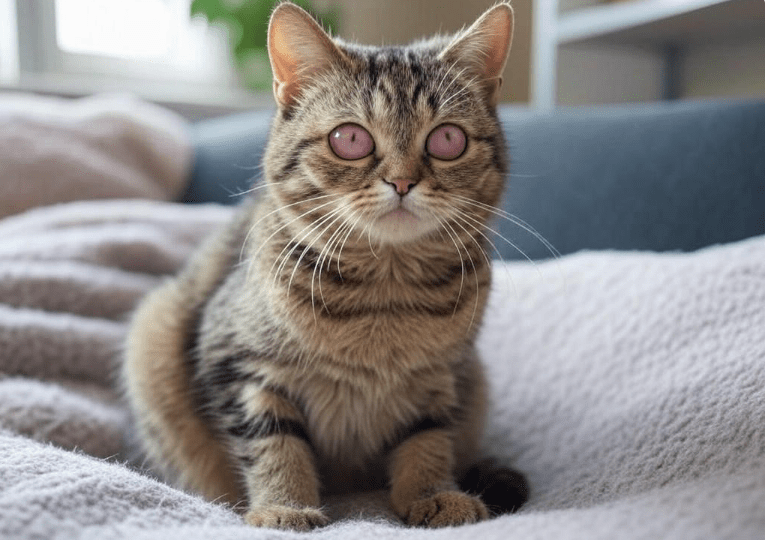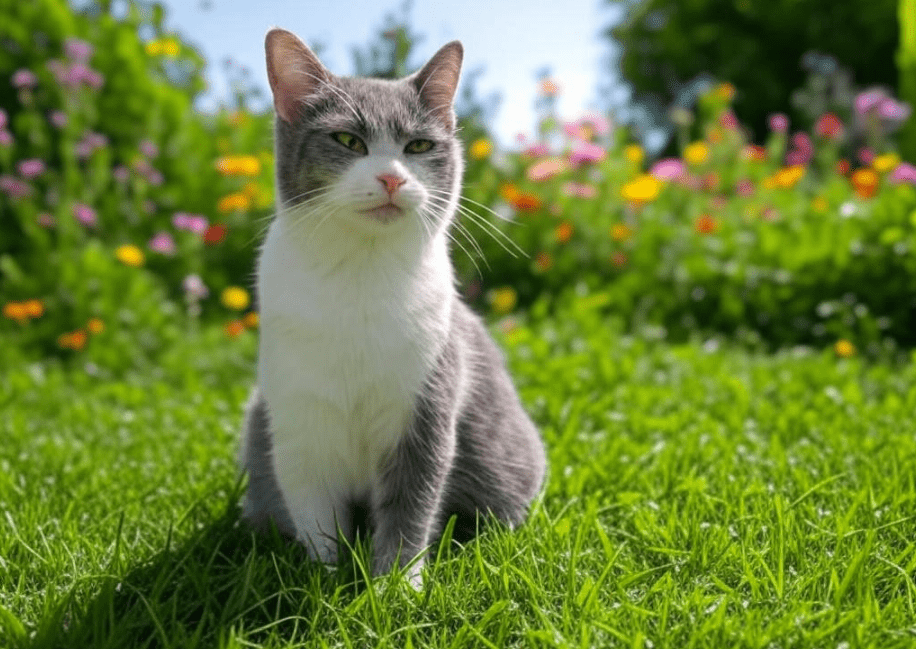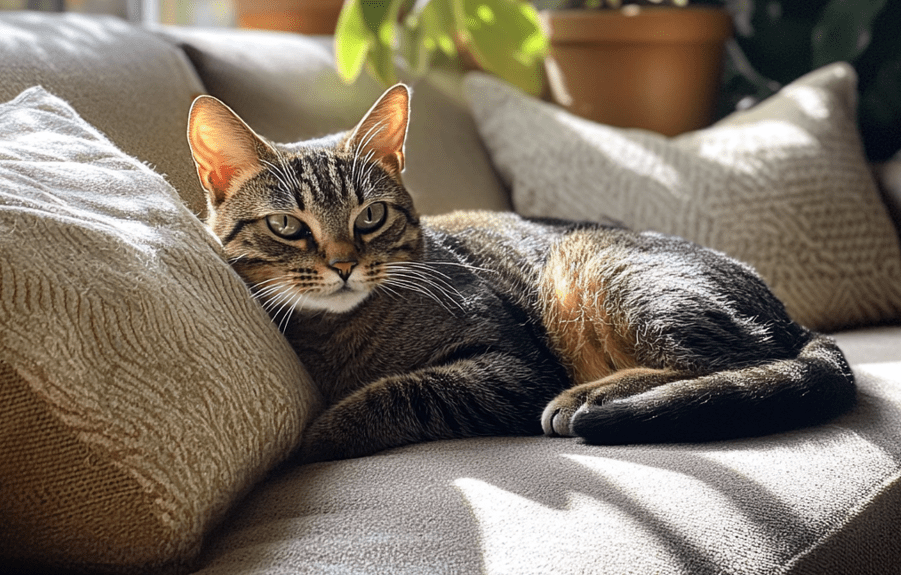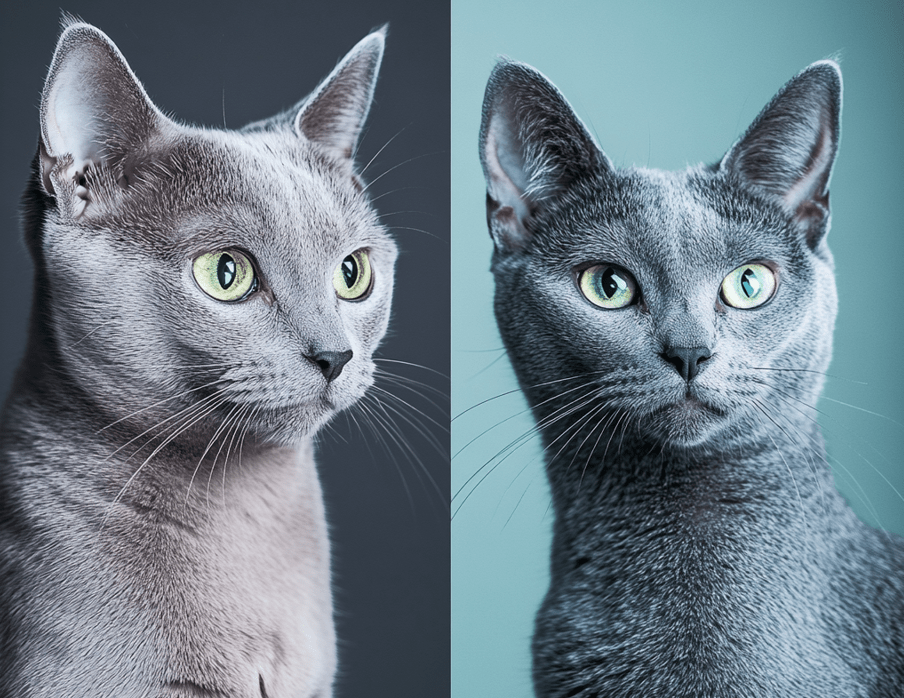
Domestic Shorthair spraying is a common issue that frustrates many cat owners. If your Domestic Shorthair is leaving urine marks on walls, furniture, or other surfaces, you’re not alone. This behavior, while natural for cats, can be distressing and challenging to manage. Understanding why your Domestic Shorthair sprays and learning how to stop it is crucial for maintaining a harmonious home. In this comprehensive guide, we’ll explore the reasons behind spraying, practical solutions to curb it, and expert tips to ensure your cat—and your household—remains happy and stress-free.
What Is Domestic Shorthair Spraying?
Spraying, also known as urine marking, is when a cat backs up to a vertical surface, lifts its tail, and releases a small amount of urine. Unlike regular urination, spraying is a deliberate behavior used to mark territory or communicate. Domestic Shorthair cats, known for their diverse coat patterns and adaptable nature, are just as likely to spray as any other breed. This behavior is not exclusive to unneutered males—both male and female Domestic Shorthairs, neutered or not, may spray under certain conditions.
Spraying is distinct from inappropriate urination, which typically involves larger amounts of urine on horizontal surfaces like floors or bedding. Recognizing the difference is key to addressing the root cause.
Why Does Your Domestic Shorthair Spray?
To stop Domestic Shorthair spraying, you must first understand why it’s happening. Cats spray for a variety of reasons, ranging from instinctual behaviors to environmental stressors. Here are the most common causes:
1. Territorial Instincts
Cats are territorial by nature, and Domestic Shorthairs are no exception. Spraying is a way for them to mark their territory, signaling to other animals that a particular area belongs to them. This is especially common in multi-cat households or environments where outdoor cats are visible through windows.
2. Stress or Anxiety
Changes in the household, such as moving, new pets, or unfamiliar visitors, can trigger stress in your Domestic Shorthair. Spraying becomes a coping mechanism for anxious cats, helping them feel more secure in their environment.
3. Hormonal Triggers
Unneutered male Domestic Shorthairs are more likely to spray due to hormones driving territorial and mating behaviors. However, even neutered cats may spray if hormonal influences persist or if they were neutered later in life.
4. Medical Issues
Urinary tract infections (UTIs), kidney issues, or bladder stones can cause discomfort, leading to spraying or inappropriate urination. If your Domestic Shorthair is spraying suddenly, a veterinary checkup is essential to rule out health problems.
5. Litter Box Problems
A dirty litter box, an unfavorable location, or an unsuitable type of litter can prompt your cat to spray or urinate outside the box. Domestic Shorthairs are fastidious creatures and may protest if their litter box doesn’t meet their standards.
6. Social Conflicts
In multi-pet households, competition or tension between cats can lead to spraying. Your Domestic Shorthair may mark areas to assert dominance or respond to perceived threats from other animals.
How to Stop Domestic Shorthair Spraying

Addressing Domestic Shorthair spraying requires a multi-faceted approach. By identifying the cause and implementing targeted solutions, you can significantly reduce or eliminate this behavior. Below are proven strategies to help you stop spraying and restore peace in your home.
1. Schedule a Veterinary Visit
Before assuming spraying is behavioral, consult a veterinarian to rule out medical issues. A thorough exam, including urine analysis, can identify conditions like UTIs or bladder inflammation. If a health problem is detected, treating it may resolve the spraying. For example, antibiotics for a UTI or dietary changes for urinary crystals can make a big difference.
2. Spay or Neuter Your Cat
If your Domestic Shorthair is not already spayed or neutered, this is a critical step. Neutering reduces hormone-driven spraying in males, while spaying prevents spraying related to heat cycles in females. The earlier this procedure is done, the more effective it is at preventing spraying. Even older cats can benefit, though the behavior may take longer to subside.
3. Clean Sprayed Areas Thoroughly
Cats are drawn to spray in areas that already smell like urine. Use an enzymatic cleaner specifically designed for pet odors to eliminate urine traces. Avoid ammonia-based cleaners, as they mimic the smell of urine and may encourage further spraying. Cleaning promptly and thoroughly disrupts the cycle of marking.
4. Optimize the Litter Box Environment
A clean, accessible, and comfortable litter box is essential for discouraging spraying. Follow these litter box best practices:
Quantity: Provide one litter box per cat, plus one extra. In a two-cat household, have three boxes.
Cleanliness: Scoop daily and replace litter weekly to keep the box inviting.
Location: Place boxes in quiet, low-traffic areas where your cat feels safe.
Type: Experiment with different litter types (clumping, non-clumping, or natural) to find your cat’s preference.
Size: Ensure the box is large enough for your Domestic Shorthair to move comfortably.
5. Reduce Stress and Anxiety
Minimizing stress is key to stopping Domestic Shorthair spraying. Identify and address potential stressors in your cat’s environment:
Create Safe Spaces: Provide perches, hiding spots, and cozy beds where your cat can retreat.
Use Pheromone Diffusers: Products like Feliway mimic calming feline pheromones, reducing stress-related spraying.
Maintain Routine: Cats thrive on consistency. Stick to regular feeding, play, and cleaning schedules.
Introduce Changes Gradually: When bringing in new pets or furniture, give your cat time to adjust.
6. Manage Multi-Cat Dynamics
In households with multiple cats, spraying often stems from competition or territorial disputes. To foster harmony:
Provide Separate Resources: Ensure each cat has its own food bowl, water dish, and litter box to reduce competition.
Increase Vertical Space: Install cat trees or shelves to give cats more territory to claim without conflict.
Monitor Interactions: Watch for bullying or aggression and intervene early to prevent stress-induced spraying.
7. Deter Outdoor Cats
If neighborhood cats are triggering your Domestic Shorthair to spray, take steps to make your home less inviting to strays:
Block Visual Access: Use frosted window film or blinds to prevent your cat from seeing outdoor cats.
Secure Your Yard: Install motion-activated sprinklers or ultrasonic deterrents to keep stray cats away.
Clean Outdoor Marks: If strays are marking your property, clean those areas with enzymatic cleaners to reduce your cat’s urge to counter-mark.
8. Use Positive Reinforcement
Reward your Domestic Shorthair for using the litter box or behaving calmly in previously sprayed areas. Treats, praise, or playtime can reinforce good habits. Avoid punishment, as it can increase stress and worsen spraying.
9. Consult a Behaviorist
If spraying persists despite your efforts, a feline behaviorist can provide tailored solutions. They may recommend environmental enrichment, behavior modification techniques, or even medication in severe cases.
Preventing Domestic Shorthair Spraying in the Future
Once you’ve addressed spraying, take proactive steps to prevent it from recurring. A combination of environmental enrichment, regular health checkups, and attentive care can keep your Domestic Shorthair content and spray-free.

1. Enrich Your Cat’s Environment
A stimulated cat is less likely to engage in destructive behaviors like spraying. Provide:
Interactive Toys: Puzzle feeders, laser pointers, and feather wands keep your cat mentally engaged.
Scratching Posts: Offer multiple scratching surfaces to satisfy your cat’s need to mark territory non-destructively.
Playtime: Dedicate 15–20 minutes daily to interactive play to burn energy and reduce stress.
2. Monitor Health Regularly
Annual veterinary checkups can catch potential issues before they lead to spraying. Pay attention to changes in your cat’s urination habits, appetite, or behavior, as these may signal underlying problems.
3. Stay Consistent
Consistency in your cat’s routine, litter box maintenance, and home environment minimizes stress and reinforces good habits. Avoid sudden changes whenever possible.
Common Myths About Domestic Shorthair Spraying
Misconceptions about spraying can lead to ineffective solutions. Let’s debunk some common myths:
Myth: Only male cats spray.
Truth: Both male and female Domestic Shorthairs can spray, especially if unspayed or stressed.
Myth: Spraying is the same as urinating.
Truth: Spraying is a territorial behavior, while inappropriate urination often stems from medical or litter box issues.
Myth: Neutering always stops spraying.
Truth: While neutering reduces spraying, stress or learned behavior can cause it to persist.
Myth: Spraying means your cat is angry with you.
Truth: Spraying is a natural response to instinct, stress, or health issues, not a personal vendetta.
When to Seek Professional Help
If you’ve tried the above strategies and your Domestic Shorthair continues to spray, it’s time to seek expert assistance. Persistent spraying may indicate complex behavioral issues or underlying health conditions that require professional intervention. A veterinarian can run advanced diagnostics, while a certified feline behaviorist can develop a customized plan to address your cat’s specific needs.
Conclusion

Domestic Shorthair spraying is a challenging but manageable behavior. By understanding the reasons behind it—whether territorial instincts, stress, or medical issues—you can take targeted steps to stop it. From veterinary care and neutering to environmental enrichment and stress reduction, the solutions outlined in this guide empower you to create a spray-free home. With patience, consistency, and love, you can help your Domestic Shorthair feel secure and content, ensuring a happier life for both you and your feline friend.
If you’re dealing with spraying, start with a vet visit and implement the practical tips above. Your Domestic Shorthair deserves a stress-free environment, and you deserve a clean, odor-free home. Take action today to address spraying and strengthen your bond with your cat.




